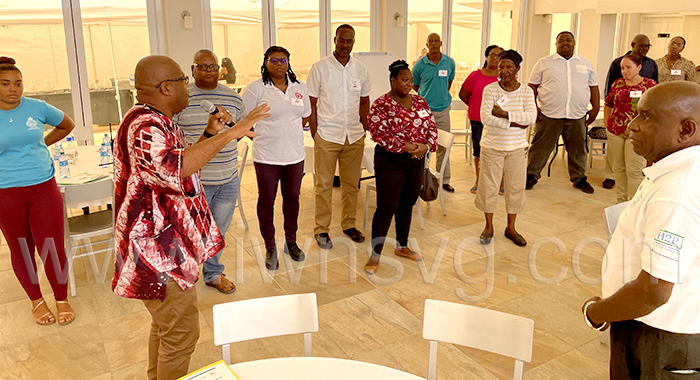By Kenton X. Chance
The chief disaster management officer in St. Vincent and the Grenadines is urging residents of Bequia to focus on how the most vulnerable members of their community receive early warnings about impending hazards.
“We do a lot of work in terms of community early warning, but still realise that there are some pockets of the community that are still not receiving the message,” Michelle Forbes, director of the National Emergency Management Organisation (NEMO) said, on Monday, at an Early Warning Systems Perception Workshop in Bequia
The United Nations Office for Disaster Risk Reduction (UNDRR) is partnering with the National Emergency Management Organisation (NEMO), the International Federation of Red Cross and Red Crescent Societies and the SVG Red Cross Society to implement the workshop.
“How are you going to do it here in Bequia? Not so much how am I going to do but how are you going to do it here in Bequia,” Forbes told the capacity building sensitisation workshop, which was attended by students, business people, community leaders, and disaster responders.
“You get that information. How are the elderly receiving it? How is the gentleman who cannot hear [receiving it],” she said, noting the experience during the April 2021 eruption of La Soufriere volcano.
“And it’s very sad that some of the disabled persons were left behind, even though that they knew that we were preparing for this emergency for quite some time,” she said.
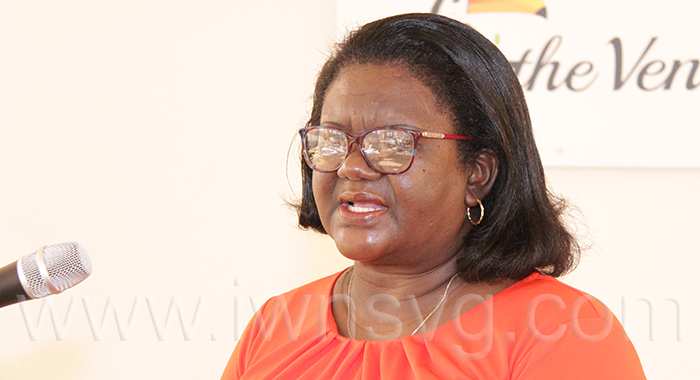
The main objective of the the workshop is to share new and existing community tools and methodologies with members of the Bequia community and to promote awareness of their application in projects and programmes.
The workshop encouraged the sharing of experiences and good practices amongst the participants and will, ultimately, enhance community knowledge for improved risk perception and effectiveness of early warning systems.
Forbes told participants that while the Red Cross, rather than NEMO, is facilitating the workshop, the dissemination of early warning is a state responsibility.
“And that’s where NEMO comes in,” Forbes said, adding that the tools that the Red Cross uses are gaining support on how to actually look at early warning systems.
She said that EWSs is a pet project of hers, adding, “Too many times we look at the top down approach in terms of having dissemination and early warnings.
“But how do you get to that the community level?” Forbes said, adding that this is something that participants should consider during the two-day workshop.
“I think after you go through today and tomorrow you will be able to see how can you be better able to take the message that is disseminated from the various entities, whether it’s the Met Services, whether it is NEMO, any other entity, and really ensure that the community gets that message.”
Forbes urged participants to be frank and really look at how they can build resilience and EWSs.
“… because it is not just an agenda for St. Vincent, it’s a global agenda, it’s part of the Sendai Framework and it’s part of the Sustainable Development Goals that we are hoping to achieve that every person can receive an early warning when it is issued or disseminated.”
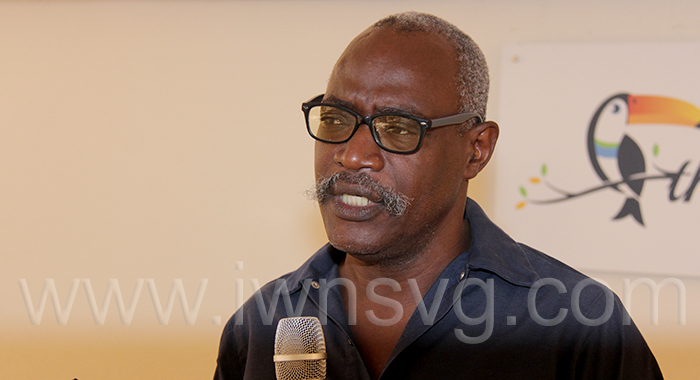
Meanwhile, Harvey Farrell, vice-president of the SVG Red Cross Society noted that one cannot stop a natural hazard, adding, “… but we can arm ourselves with knowledge so many lives would not have to be lost if there was any natural disasters.
“… we have to be prepared for any disasters and I am happy that we were able to bring this activity to Bequia,” he said, noting that quite often we ask the people from the Grenadines have to travel to St. Vincent for such activities.
“… it shows that the authorities are very much aware of your position in the Grenadines when it comes to vulnerability to natural disasters and use you in your own local community with your own local knowledge of your situation to help to reduce the effects of any natural disasters — whether natural or manmade,” Farrell said.
“… we do hope that at the end of this two-day exercise, that over overall we are far better prepared to respond to any disaster.”
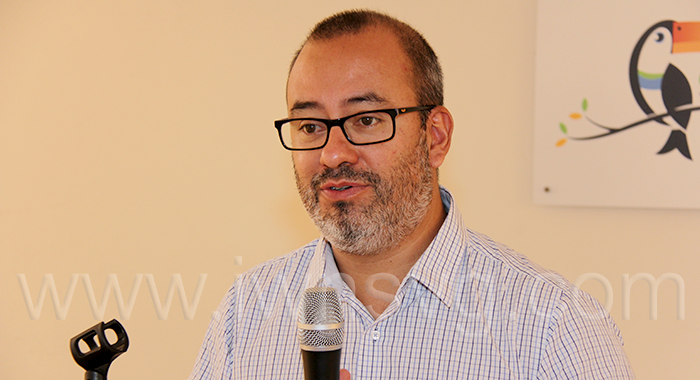
And, Jair Torres,senior consultant on DRR, resilience, sustainability and adaptation to the UNDRR office in Panama, said it is important for the UNDRR “to listen to you in order to better understand how we can really support not only St. Vincent and the Grenadines, but the whole Caribbean region on how to improve policy design but as well the actions that are being implemented for early warning systems.
He said that the workshop is important for the UNDRR because it will be followed, on Tuesday, by a consultation that is more of a dialogue between representatives of the community and the local and national government.
“And the idea is that we have really a frank dialogue about how we improve the policy and also the implementations, what is our understanding of what our social capacities about the awareness that we have from DRR, etc. etc.,” Torres said.
He said that the outcomes of the conversation will be really drafted in a report that will be submit to the whole region to help improve the policy and actions, “trying to better understand what are the needs of the community, the needs of the individuals in order to really improve the way how we really implement this early warning system”.
He said this is why participation in the two-day workshop is important.
“The idea behind today is that you can really get a little bit more empowered with knowledge and awareness about disaster risk reduction in order that tomorrow you feel more comfortable with discussing with local authorities,” Torres said.
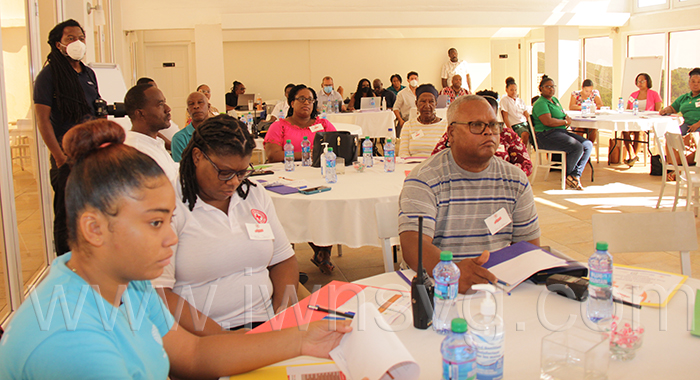
Representatives from governmental and non-governmental organisations will travel to Bequia to participate in Tuesday’s early warning systems perception workshop.
Tuesday’s workshop will bring together local authorities and community members to increase understanding of risk and early warning systems perceptions of institutions and communities.
This will facilitate increased engagement and use of multi-hazard early warning systems by stakeholders and practitioners.
This workshop is conceived as a participatory instrument to be used by public officials and authorities in local and national government agencies to assess risk and early warning systems perception from an integrated perspective.
The workshop aims to implement a multi-level and multi-scale self-evaluation dialogue that will empower stakeholders to quantitatively assess resilience parameters based on information received from community members and the local authorities.




